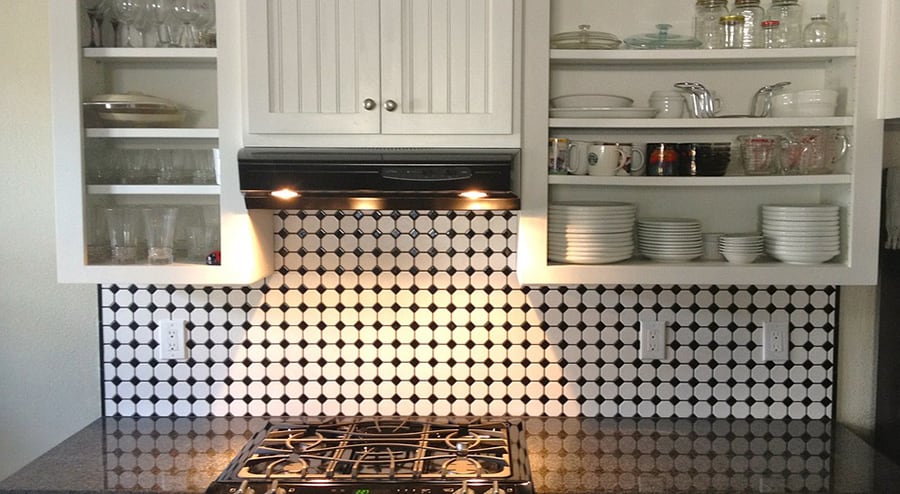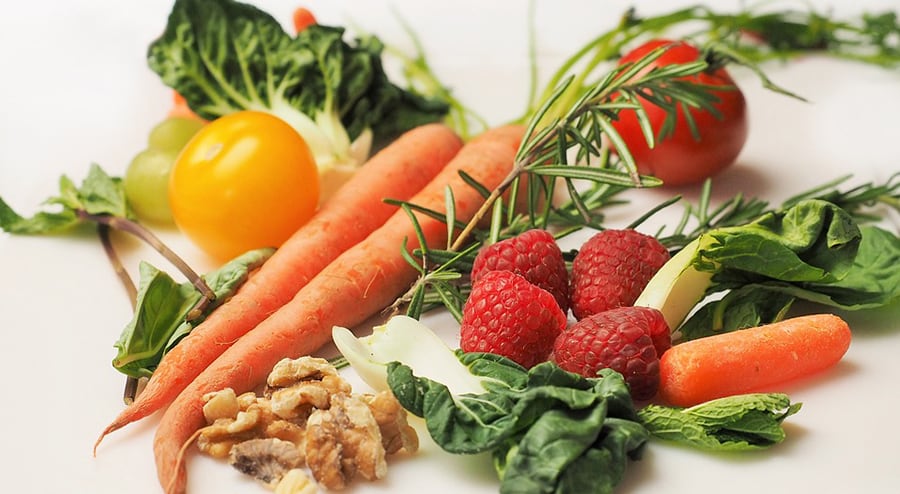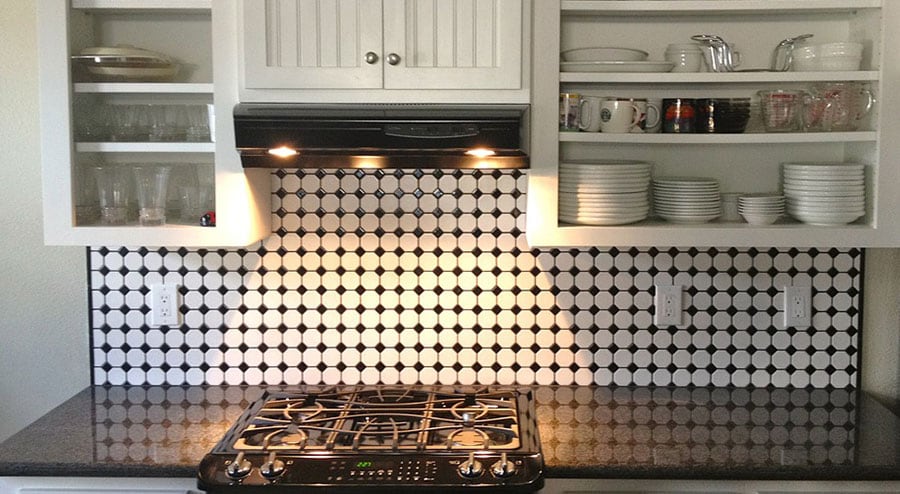While the kitchen continues to represent a focal point in the homes of families today, it was an even more important gathering place for our grandparents. They’ve been preparing meals in the kitchen for decades.
For those that continue to live in the home, meal preparation may not be as simple as it used to be. Accidents are common and kitchen safety for grandparents, grandchildren and adults alike are often overlooked, as too are the healthy eating habits of our grandma and grandpa!
In fact, according to FEMA, while family members will have accidents in the kitchen and other rooms in the house, those over age 65 are two and a half times more likely to die in a kitchen fire than the rest of the population.
So, while we need to take care of those playful and curious grandkids, we also need to make sure that grandma is okay, too. Fires in the kitchen represent one the biggest risks for seniors, but falling and tripping hazards are also common risks. Balance problems, confusion and medication side effects can be major contributors to injuries in the kitchen for grandparents.
Tips for A Safer Kitchen
The following tips will help you make the kitchen a safer place for your loved ones.
Lighting
One of the easiest ways to improve safety in the kitchen involves the addition or changing of lights. Dark areas are especially dangerous in the kitchen due to the presence of hard and sharp objects as well as the potential for slippery surfaces.
Start by ensuring there is plenty of light at the counter-tops, sink and range. These are the most crucial areas for safety. Consider installing night lights to help your loved one navigate their way to the switches without putting themselves in danger.
Then, consider removing any shiny work surfaces that could potentially disorient your loved one. Also, make sure that there are easily accessible light switches at every entrance to the kitchen. You can always hire a licensed electrician to come out to install new light switches or to move the current ones to more practical locations.
Kitchen Appliances

Appliances represent a big part of the functionality in any kitchen. We all use them on an almost daily basis. However, there may be some appliances that your loved one doesn’t really use, except for special occasions. If this is the case, you can store these appliances in a safe place and bring them back for those certain times when our loved one may use them.
Make sure that the remaining appliances are well-maintained and that your loved one is using them appropriately. Also, you should move any appliances away from sink areas.
When it comes to the range, check to make sure that there are no objects, such as curtains, close enough to touch the burners. And keep the area around the range as clear as possible.
Ensure that the exhaust vent is actually connected to the exterior of the home and that it works properly. If your loved one has a gas range, it should include an automatic shut-off and pilot light.
The controls should be clearly marked and easy to use. These controls should also be located on the front of the range so that your loved one won’t need to reach over the burners.
For those that have an exhaust hood, the filters should be easy to remove for cleaning. These filters may need to be cleaned every few weeks depending on use.
Work Surfaces and Cabinetry
It takes very little time and money to make changes to the storage and work areas in the kitchen and these changes can make a huge difference for your loved one. Overall safety in the kitchen depends on senior-friendly work areas.
Start by teaching your loved one to close all drawers and cabinet doors when they’re not using them. If necessary, install new hardware to make it easier to close these items.
Make sure that your loved one has plenty of counter space to meet their needs and place commonly used items in the most accessible places. Always keep these surfaces as clear as possible of unnecessary items.
Consider a lever-handled faucet to make things easier as well. When it comes to cabinetry, you should focus on making things as accessible as possible. You don’t want your loved one to be standing on stools and reaching over things to get what they need. Make sure everything is easily reached and, if necessary, get some pull-down shelves.
Meal Prep and Cooking
As we discussed before, meal preparation and cooking may not be as easy as it once was for your loved one. In fact, it can be dangerous. However, you can do a few simple things to improve safety in the kitchen during meal prep and cooking.
Ensure that all sharp objects like knives are properly stored and safely accessible. Make sure that your loved one can easily find pot holders and hot pads when needed.
Talk to them about keeping pot and pan handles turned away from the edge of the range when cooking, and make sure they’re not wearing clothing with loose, long sleeves.
Other Safety Ideas
Here are a few other things you can do to improve kitchen safety for your loved one:
- Consider installing anti-glare, non-slip flooring.
- Store all flammable liquids outside the home.
- Disconnect the garbage disposal if necessary.
- Clean out junk drawers and find another area for storage of these items.
Tips for Healthier Eating

Healthy eating is just as, if not more, important for seniors. When you consider all the common restrictions placed on their diets, you can understand why meal prep can be so tough. We hope these tips will make it healthy eating less difficult for your loved one.
Hydration, Hydration, Hydration
Although it may seem simple, drinking enough water is one of the most crucial parts of a healthy lifestyle for seniors. Every single cell in the human body depends on water to continue working properly.
If your loved one has trouble drinking enough water, herbal teas and juices can provide a good backup option. Staying hydrated should always be a priority for maintaining your loved one’s healthy lifestyle.
Fiber-Rich Foods
Fiber helps to regulate and control the digestion process, so it is a good idea to eat foods rich in fiber, especially for seniors. These foods include black beans, lima beans, lentils, peas, artichokes, Brussel sprouts, broccoli, whole-wheat pasta, bran flakes, pearled barley, blackberries, pears, avocados and oatmeal.
To add a little more fiber to your loved one’s diet, include some flaxseed meal in their yogurt, smoothies and baked goods.
Pay Attention to Nutrition Labels
Food packaging can really be deceiving these days. Before you buy any food item at the grocery store, you should take a moment to look at the nutrition label. Pay close attention to the actual serving size versus how much your loved one is actually eating.
You should always stay up to date with your loved one’s dietary recommendations and restrictions so that you can make sure you buy food accordingly. The nutrition facts label can be especially helpful when watching for certain ingredients.
The Importance of Vitamin D
Since Vitamin D plays a major role in the function and preservation of bone and muscle, it is no surprise that doctors so strongly recommend this vitamin for the elderly.
Some experts believe that vitamin D can actually lead to fewer visits to the ER by preventing bone fractures and maintaining muscles that keep falls from happening as frequently.
Your loved one can boost vitamin D intake through an array of different foods and supplements. They can also get some vitamin D by spending a little time outside on a sunny day.
The Essential Omega 3
Fish, nuts and other foods high in Omega 3 oils provide essential support for a number of different bodily functions. These foods are known to reduce the risk of stroke and heart disease, but they can also boost overall brain function. Studies have shown that Omega 3 can actually improve a senior’s memory.
Reducing Sodium
A low-sodium diet is an essential step to healthier eating. By reducing sodium intake, you can lower your loved one’s blood pressure. Foods like dry beans, unsalted nuts, brown rice, oats, grains and fruits are great options for a low-sodium diet.
Be especially careful when eating out with your loved one. You may never know it, but some restaurant meals include a ton of sodium.
Probiotic Support
No matter how old you are, digestive health is very important. Probiotic consumption can improve bifido-bacteria levels, enhance your immunity to illnesses and reduce your risk of constipation.
All of these things can greatly benefit seniors as well.Yogurt, juices, soy beverages and milk all contain probiotics. You can also find specialized shakes that add a probiotic boost.
Reminder to Take Things Slow
Multiple studies have shown that eating more slowly benefits the body. Smaller bites and slower eating habits lead to more chewing and better overall digestion. Make sure your loved one knows that meals should be enjoyed slowly and not scarfed down.
You can find numerous other resources for improving kitchen safety and health, but these tips provide a great start. The kitchen represents a very important place. Make sure you take the time to get it right for your loved one.
Sources
- https://www.usfa.fema.gov/data/statistics/
- https://staysafe.org/improve-health-and-safety-in-the-kitchen-for-grandparents/
- https://www.usda.gov/media/…/grandparents-help-kids-develop-good-eating-habits
- https://www.grandparents.com › Health & Wellbeing › Exercise & De-stress
- https://www.brown.edu/campus-life/events/student-activities/…/foodsafety.pdf




